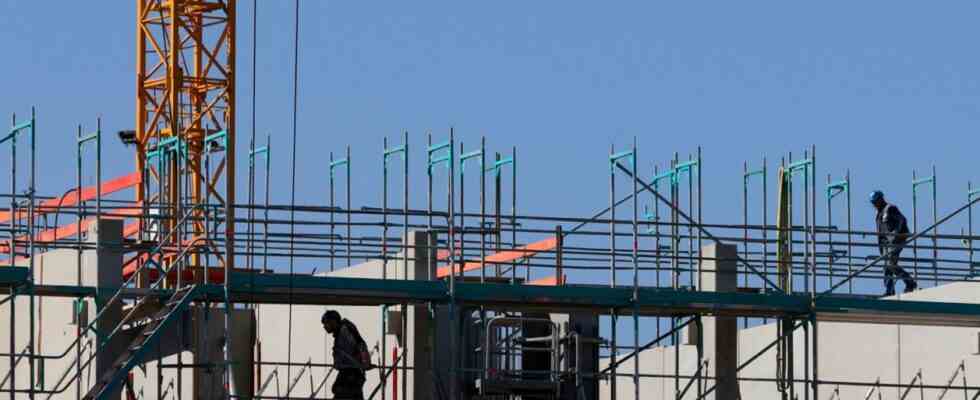The opposition in the state parliament unanimously criticized the housing policy of the government of Prime Minister Markus Söder (CSU) on Tuesday – mainly because of the previously meager balance sheet of the state company “Bayernheim”. When it was founded in 2018, Söder set a goal of 10,000 affordable apartments by 2025. Since then, not a single unit has actually been built, there have only been manageable purchases for the existing stock; intermediate targets were also missed.
At the debate requested by his FDP parliamentary group, Sebastian Körber said that Söder had “failed with a bang”. As a “service opposition”, he advises Bayernheim to be “liquidated immediately” and the funds given to municipal or cooperative companies – “they can build”. It is also significant for Körber that the state real estate company Imby did not bring any of the thousands of plots of land owned by the Free State to the building site. Anyone who fails like this in the free economy “should have to close the shop”.
Bayernheim’s meager progress has been a subject of debate for a long time. Construction Minister Christian Bernreiter inherited the issue from his predecessor Kerstin Schreyer (both CSU) when he took office in February. The Supreme Court of Auditors (ORH) recently complained in its annual report: “There are serious problems with implementation.” By the end of 2021, only 848 apartments had been bought, which were already subject to the provisions of state housing subsidies; 234 were ready for occupancy.
The Ministry of Construction replied that there were 3,460 Bayernheim apartments if you added stock, construction, planning and development. And for a “newly founded company in the highly dynamic housing market”, the ORH criticism is “unpractical”.
All opposition factions worked their way through the housing policy. You don’t expect an “opulent five-course menu with frills,” said Jürgen Mistol (Greens), but are satisfied with “bread and butter first” – namely the fulfillment of the Bavarian constitutional mandate for affordable housing. However, the stock of social housing is falling continuously, and rents increase the risk of poverty, especially in times of crisis. What is needed is “a real change of course”.
Florian von Brunn (SPD) said that the Bayernheim idea was good in itself, but not sufficiently backed by money, not powerful: “What’s the point of a housing association that doesn’t build a single apartment?” The CSU is also blocking the full implementation of a federal law on the mobilization of building land, which offers the municipalities options. Franz Bergmüller (AfD) also called for tax incentives to build houses and apartments. As part of the problem, he also identified the fact that since 2015 “an incredible number of economic refugees” have been pushing into the social housing market.
Building Minister Bernreiter countered in the state parliament that he was “always available for honest, useful suggestions”, but only “insinuations and catalogs of wishes” were made. There are three state-owned companies, in addition to Bayernheim, “Stadibau” and the Nuremberg settlement, which together currently have almost 20,000 units.
Bayernheim is being pushed forward with “great effort”, and free areas owned by the state are being “systematically” checked for their suitability. In addition, state housing subsidies are at “record level”. Despite Corona and material bottlenecks, more is being built in the Free State than it has been for a long time. “We should be in love with success and not talk successes to pieces.”
He received support from the government factions. “No company runs with a snap of the fingers,” said Hans Friedl (FW) to Bayernheim. However, he noted that Söder’s target announcement for 2018 “was perhaps too ambitious”.

